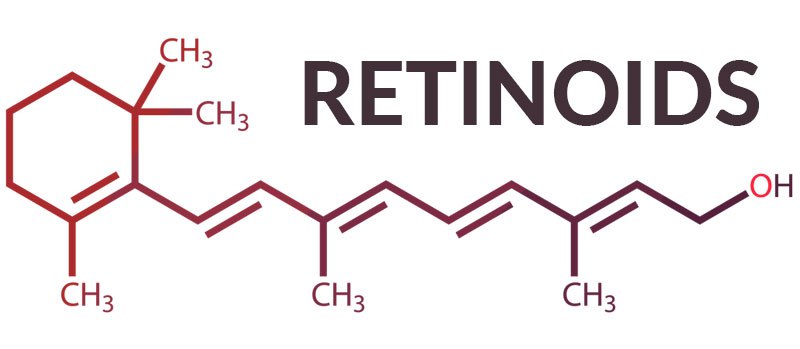As you’ve probably gathered from our blog, salicylic acid, glycolic acid, lactic acid, and urea are among the best exfoliating ingredients for your skin. However, exfoliating isn’t just limited to these few ingredients; retinoids are also often recommended as a great way to exfoliate your skin. Yet given their potential for irritation in users, are retinoids really worth it? ViaBuff investigates!
Retinoids Can Exfoliate the Skin…
Retinoic acid has often been used to treat conditions such as skin aging, acne, and wrinkles, but its aptitude in promoting cellular proliferation and differentiation may also partially explain why it is such a strong exfoliative ingredient. For example, research published in the journal BioMed Research International found that retinoic acid was effective in promoting cell renewal and decreasing the thickness of skin’s horny layer. However, several studies have found that unlike benzoyl peroxide and salicylic acid, retinoic acid may act in a time-dependent manner. Whereas benzoyl peroxide and salicylic acid typically exhibited significant keratolytic activity within a few hours, research published in Skin Pharmacology and Physiology and Cosmetics and Toiletries found that retinoic acid did not exhibit noteworthy activity until six hours after initial application. Similarly, the acid form of retinol known as tretinoin is also a great keratolytic agent that encourages epithelial cell turnover and is also commonly employed to treat acne breakouts. Tretinoin is also believed to modulate abnormal keratinization, a condition which can result in a buildup of hardened skin cells. When used daily, Vitamin A (also known as retinol) is believed to treat signs of both photoaging and chronological aging. Given that the skin can convert retinol to retinoic acid, many exfoliating serums will contain retinol, although exfoliating serums containing AHA’s and BHA’s (like glycolic acid and salicylic) acid still appear to be the most common main ingredients for exfoliating products (World Health Organization, Cosmetics and Toiletries, The International Dermal Institute).
…But They Aren’t Good for Everyone
Despite their awesome effects on the skin, retinoids aren’t meant to be used on everyone. Retinoids have been linked to skin darkening, irritation, flaking, stinging, and soreness in some individuals, among other adverse effects. You should make sure that retinoids do not come in contact with open lesions, your eyes, and mucous membranes, as this will result in great irritation. Those with eczema may experience immense irritation when using tretinoin, so it is best to consult with a dermatologist before using this therapy. Additionally, topically-applied retinoids may injure fetuses, so pregnant women should avoid using retinoid-containing products. Given the high potential for adverse effects, you should only use retinoid-containing products under the direction of a dermatologist (Dr. Neal Schultz at DermTV.com, World Health Organization).
Bottom Line
Numerous studies have found that retinoids exhibit keratolytic activity, among numerous other benefits. Regretfully, retinoids’ high potential for causing irritation makes them undesirable for many individuals, especially those suffering from eczema or who are pregnant/nursing. If you would like to introduce a retinoid-containing serum into your skincare routine, you should consult with your physician first so as to determine retinoids’ suitability for your skin type. If you have any questions, feel free to send us an email, we love hearing from our readers!






